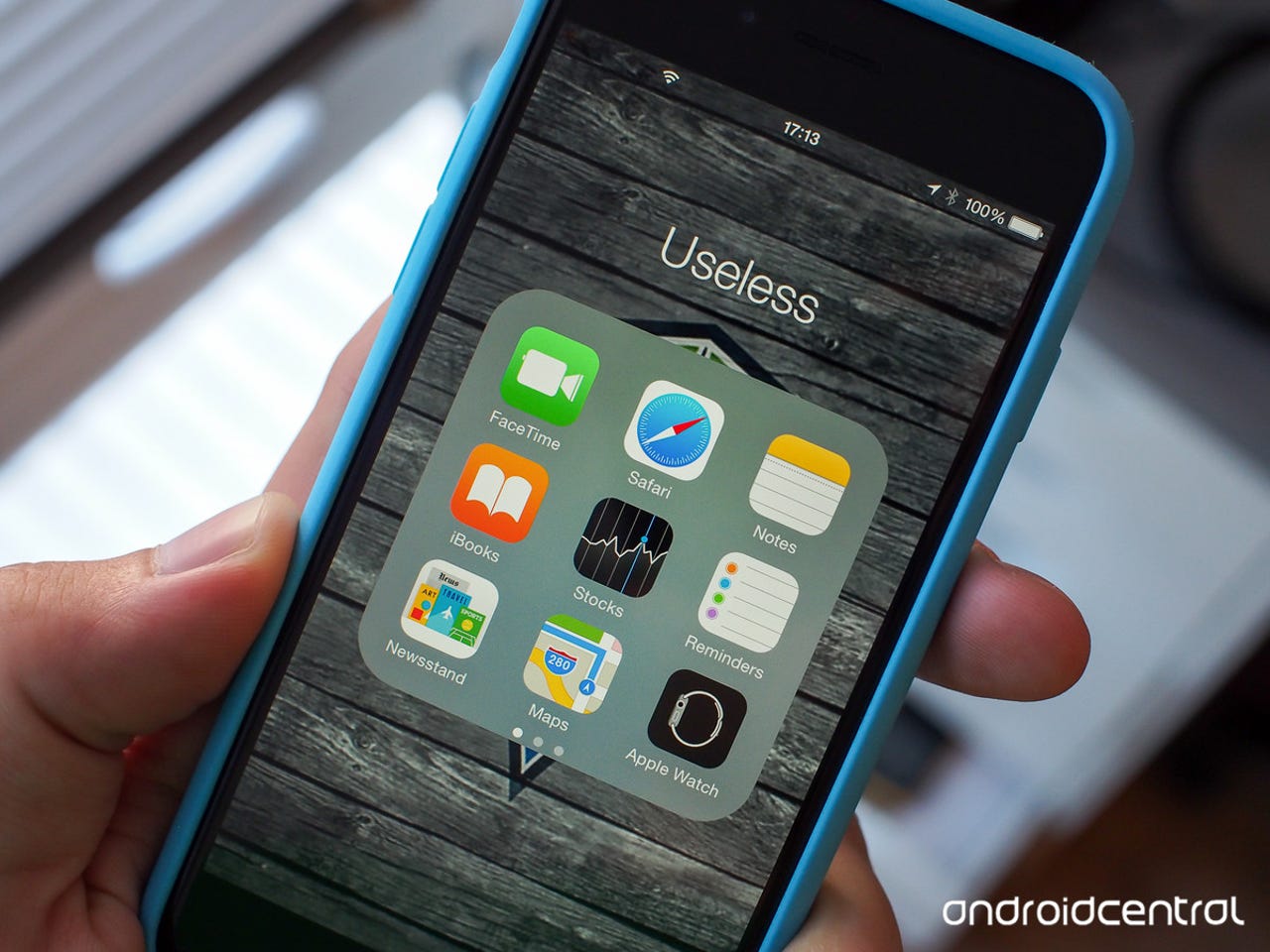Tim Cook: Apple "looking at" letting users remove some pre-installed iOS apps

Hands up: Who else besides me has a folder on their iPhone or iPad dubbed "Junk," "Bloat," or "Don't Use" filled some non-removable and never (or rarely) used iOS apps?

OK, you can all put your hands down now. (And those who didn't raise their hands: Are you really using that "Tips" app?)
Chances are, most iOS device owners have a few Apple apps that were pre-installed and you can't get rid of them, even if you're not using them. That could be changing in the future.
Speaking to BuzzFeed during a visit to the Fifth Avenue Apple Store in New York City, Apple CEO, Tim Cook, said the company is looking into a solution.
"There are some apps that are linked to something else on the iPhone. If they were to be removed they might cause issues elsewhere on the phone. There are other apps that aren't like that. So over time, I think with the ones that aren't like that, we'll figure out a way [for you to remove them]."
This isn't a problem unique to Apple's iOS platform, of course. Google's Android also comes with a suite of apps and Google services, many of which can't be easily removed. However, Google has softened its stance in the past and does allow some apps to be uninstalled or, at the very least, hidden.
It's likely that Apple will take the latter approach, mainly because it's a simpler one for iOS. You can't set a mobile app as a default in iOS like you can on Android, for example. Unless that changes -- highly unlikely -- some Apple developed software will always reside on an iPhone or iPad.
Apple hiding certain apps is pretty much the same approach that device owners use now, except we "hide" them in a visible folder.
Apple March 15
That helps to some extent, but it doesn't resolve the issue of storage: Since the apps are still installed, they're taking up space on your iOS device's flash drive. Perhaps that's another good reason not to opt for a 16 GB iPhone.
Either way, it's at the very least comforting to know that Apple is aware of a situation that causes a little dissatisfaction. For a company that thrives on high consumer satisfaction numbers, this could be an easy pain-point to resolve in a future version of iOS.